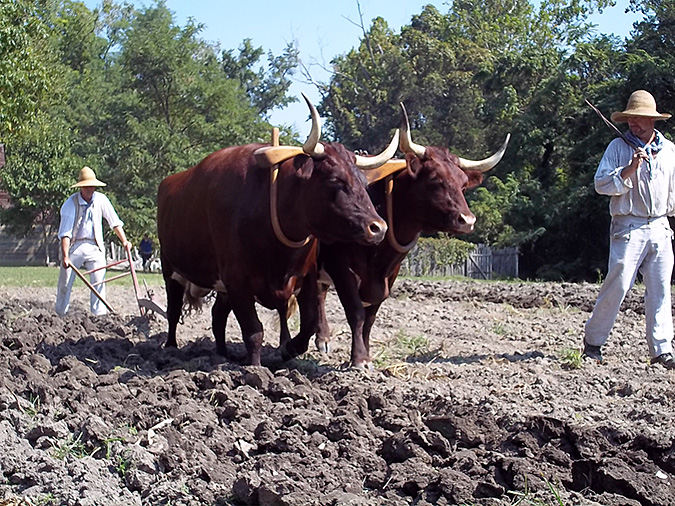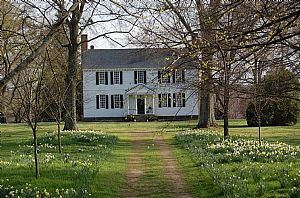Goochland County Marriages, Wills, Estates
Goochland County was named after Sir William Gooch, the Lieutenant Governor of Virginia from 1727 to 1749. It was created from Henrico County in 1728.
Traced genealogies and family histories of Goochland County are available to Members!
| Chastain | Daniel | Freeman | Stovall |
| Lynch |

Marriages
- Bonds, 1730 to 1751
- 1750 to 1854
Digital Images of Deeds, Wills, Inventories
- 1728 to 1734, Bk 1
- 1734 to 1736, Bk 2
- 1737 to 1742, Bk 3
- 1748 to 1755, Bk 6
- 1755 to 1759, Bk 7
- 1759 to 1765, Bk 8
- 1765 to 1769, Bk 9
- 1769 to 1775, Bk 10
- 1775 to 1777, Bk 11
- 1777 to 1779, Bk 12
- 1779 to 1784, Bk 13
- 1784 to 1788, Bk 14
- 1788 to 1791, Bk 15
- 1791 to 1795, Bk 16
- 1796 to 1800, Bk 17
- 1800 to 1803, Bk 18
Digital Images of Goochland County Wills 1741 to 1745
Testators: Atkinson, Robert;Ballenger, Joseph; Bell, David ;Christian, Thomas;Cunningham, James; Dillon, William; Dupuy, Bartholomew; Ford, Peter; Harrar, William ;Holland, Michael; Holland, Michael the elder to Michael, Jr. (deed); Horros, William; Marton, Peter ;Mayo, William ;Meriwether, Nicholas ;Parrish, Humphrey Sr. ;Payne, George ;Purkins, Abram ; Randolph, William ;Sampson, Francis ;Spear, John ;Taylor, Charles; Trabue, Anthony
Digital Images of Goochland County Wills 1745 to 1749
Testators: Butler, Edmond; Carter, Edward; Clements, Stephen; Coleman, Samuel ;Cox, Sarah; Easly, John ;Hix, John ; Holland, Michael (deed); James, Francis ;Levillain, Jean ;Levillain, John ;Lockett, Thomas ;Mogginson, William ;Morgain, Robert ;Mosby, Richard ;Netherland, Sarah ;Phelps, John ; Randolph, William ;Turpin, Obedience ;Warron, Daniel
Will Abstracts
- Wills (abstracts) 1736 to 1742
Indexes to Probate Records
Index to Wills, Deeds, Inventories, 1741 to 1745
Miscellaneous Wills
Bostick, John, LWT dated 1749
Chastain, Peter (1728)
Clement, Stephen (LWT) 1745
Hutcherson, Matthew, LWT (1749) (Digital Image)
Lewis, Charles, LWT (transcript)
Perkins, Constantine, Inventory dated 1860
Tithables
- Prince William Parish for 1735
Did you Like what you Discovered about your Ancestors?
Discovering the past is interesting. It concerns earlier times and how people handled good and bad situations. Sometimes we think that we are in the worst of times, however, a glimpse into the past will awaken a new truth. The ancestors left foreign shores to come to America and hone out an existence in a wilderness county full of hardships. For many centuries the average person lived to be about thirty or forty years of age. They died of disease and misfortune. Thousands of vessels did not reach America due to hurricanes, storms, and unforeseen navigational errors. Such vessels are being discovered in ocean graves. Emigrants were not necessarily greeted by friendly Indians. Despite the wonderful story of John Smith and Pocahontas, Powhatan’s tribes raved the Virginia peninsula in 1622/3 and killed all but a handful of the first settlers. Some historians will have you believe that the Europeans brought African slaves to tell this land. Not so. Instead, they brought family members and white indentured servants. For this trouble and expense, they receive land grants. This was the situation during most of the 17th century. So what did these settlers build in so short a lifespan? In Virginia, they invested in their plantations more so than the home place while contributing to the community by building roads, attending church, and supporting the local glebe by paying to tithe (tobacco). Also, every man over 21 years of age was expected to serve in the local militia and help to protect the home place. Remember the rebel Nathaniel Bacon? He organized a small army of men to rid the area of marauding and scalping Indians when the Royal Governor refused to do so. Afterward, was hanged. From all indications of private study into Virginia lineages, it would appear that the very reason that people left their English roots where nobility ruled, was to have a better life. The royal governors were no fine example of fairness. Although Berkeley ended up being recalled, his successor was not an improvement. Throughout the 17th and 18th centuries, Virginians were constrained to pay taxes and tariffs to the English for incoming supplies. The English Laws were continuously redrafted to hold the colonists in check. American history is fascinating, especially when one realizes how his ancestors played a part in the drama. The genealogist probably knows more of the intricate details of history than anyone else and such knowledge is invaluable in discovering one’s roots. List of Traced Virginia Families on this website

